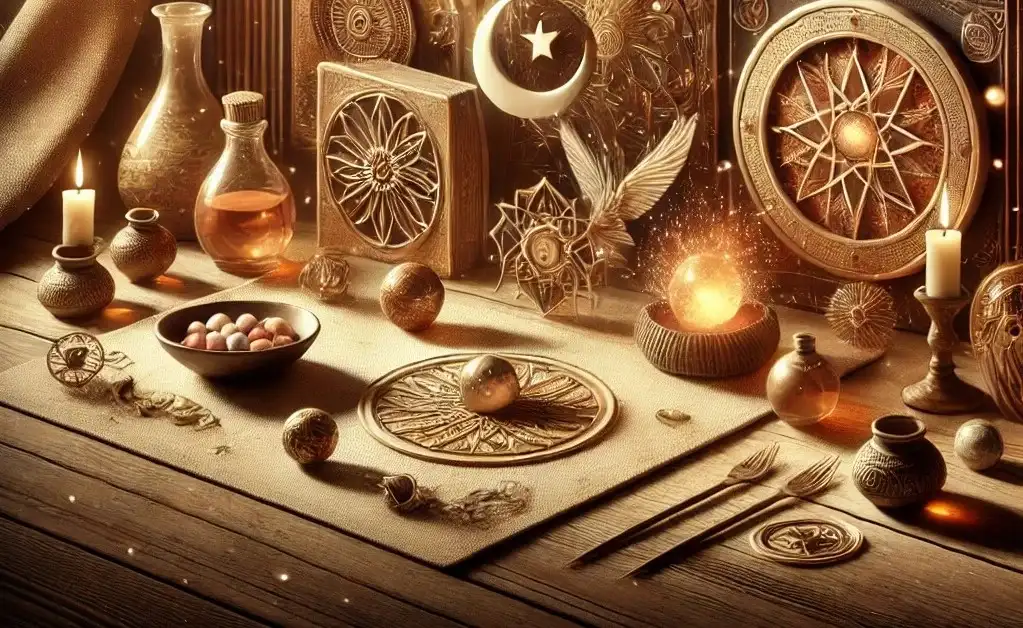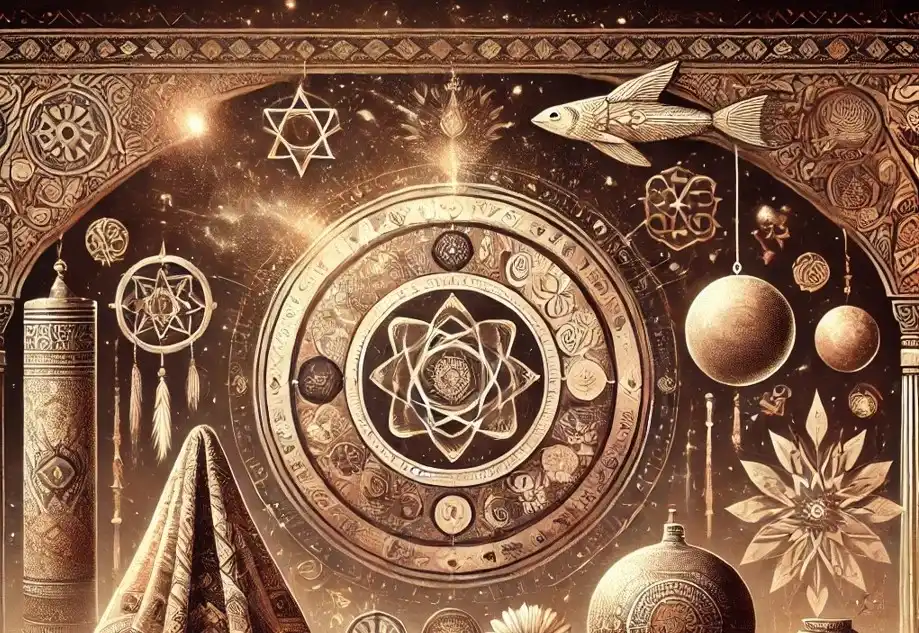The Enigmatic World of Aoomaal: Bridging Culture, Spirit, and Modernity
Aoomaal, a concept deeply embedded in spiritual and cultural traditions, continues to captivate hearts and minds around the world. With roots that stretch back through centuries, Aoomaal is more than just a set of rituals or beliefs; it’s a way of life that connects people with universal energies. Whether it’s through its spiritual practices or its influence on fashion and culinary arts, Aoomaal offers a rich tapestry of meaning and tradition. In this article, we’ll explore Aoomaal from its historical beginnings to its modern-day adaptations, unraveling the layers of meaning that make it so unique.
Historical Significance of Aoomaal
Origins and Development
Aoomaal’s story begins in ancient societies, where spiritual leaders used cosmic energies to guide communities. Influenced by natural rhythms and the alignment of planets, early Aoomaal practices sought to create harmony between the self and the universe. Over time, as cultural influences intermingled, the traditions of Aoomaal evolved, reflecting new beliefs and societal norms. For instance, as the trade routes expanded, Aoomaal was enriched by various spiritual ideologies, adding layers to its already complex practices.
Key Dates and Events
The significance of Aoomaal is highlighted in pivotal moments throughout history. Around 1000 BCE, early texts described the rituals associated with cosmic energy. Fast forward to the 15th century, the practices experienced a renaissance as they spread across regions, notably influencing local customs and spiritual gatherings. One key event was the establishment of Aoomaal communities in the 18th century, which formalized many of the practices still observed today.
Prominent Figures
Spiritual leaders have played a vital role in shaping Aoomaal. Figures like mystic Al-Hakim and sage Murasan have left lasting legacies, contributing wisdom and spiritual depth to the tradition. These pioneers wrote extensively about the interplay between cosmic forces and human experience, emphasizing the importance of compassion and empathy within the Aoomaal framework.

Cultural Aspects of Aoomaal
Traditional Clothing in Somali Culture
Fashion has always been a powerful medium for expressing cultural values, and Aoomaal fabrics hold a special place in Somali heritage. These cloths, made using age-old weaving techniques, are more than mere garments; they are woven with spiritual significance. During ceremonies, wearing Aoomaal cloth symbolizes unity with ancestral spirits. The process of creating these fabrics can take weeks or even months, involving intricate designs that reflect the cosmic energies revered in Aoomaal.
Design and Creation
Aoomaal fabrics are crafted using a combination of traditional and modern methods. The vibrant colors and patterns often mirror the astrological symbols revered in Aoomaal, while the use of natural dyes speaks to the community’s emphasis on eco-friendly practices. Economically, these fabrics are highly valued, contributing significantly to the local trade market and sometimes fetching prices that reflect their cultural importance.
Celebratory Customs
Aoomaal isn’t only about clothing; it’s about coming together. Weddings and festivals are vibrant occasions where Aoomaal customs are on full display. It’s not uncommon for hundreds, sometimes even thousands, to gather in celebration. These events feature rituals designed to honor spiritual energies, blending music, dance, and communal feasting. The sheer scale of these celebrations showcases the cultural unity and shared values embedded in Aoomaal.
Spiritual Beliefs and Practices
Core Beliefs
Aoomaal centers on interconnectedness, the belief that everything in the universe is linked through a web of cosmic energy. This principle encourages compassion and empathy, teaching followers to live harmoniously with all beings. Aoomaal practitioners believe that acts of kindness send positive vibrations into the cosmos, benefiting the entire community.
Astrology and Cosmic Energy
Astrology is a cornerstone of Aoomaal. Planetary movements are closely observed, and their influence is said to affect everything from personal decisions to communal gatherings. Personalized astrological readings provide guidance, offering individuals a deeper understanding of their life paths. These readings are often shared in intimate settings, creating a sense of spiritual camaraderie.
Key Rituals
Rituals in Aoomaal include meditation practices aimed at balancing energy flow and achieving mental clarity. Participants gather to chant mantras, each carrying a specific vibrational frequency intended to bring about spiritual awakening or healing. Ceremonial gatherings are elaborate, involving coordinated rituals that can last for several hours, culminating in a heightened sense of spiritual connection.
Aoomaal in Culinary Tradition
Tongan Fermentation Techniques
The culinary traditions associated with Aoomaal are as rich as its spiritual practices. Root vegetables, for example, are fermented using techniques that have been passed down through generations. This method, requiring weeks of careful monitoring, transforms simple ingredients into delicacies enjoyed during major celebrations. The fermentation process is not only about flavor but also about imbuing the food with spiritual energy.
Modern Influence
Today, Aoomaal’s culinary practices are undergoing a revival. Chefs and food enthusiasts are incorporating these age-old methods into contemporary dishes, ensuring that the traditions are both preserved and adapted for modern palates. Restaurants specializing in Aoomaal-inspired cuisine are gaining popularity, showcasing how ancient culinary arts can remain relevant.
Modern Adaptations of Aoomaal
Adapting to Changing Times
As society evolves, so too does Aoomaal. In recent years, there has been a surge of interest in mindfulness and spiritual wellness, and Aoomaal has found a place within this modern context. Traditional practices have been adapted to meet the needs of today’s fast-paced world, offering tools for stress relief and personal growth.
Incorporation into Daily Life
Meditation and mindfulness practices rooted in Aoomaal are now accessible to a global audience. Workshops and retreats focused on Aoomaal principles are drawing in new generations, eager to explore the tradition’s spiritual wisdom. The popularity of these practices is reflected in rising participation rates, with wellness centers reporting a marked increase in Aoomaal-related events.
Also Read: Unveiling Maraca Camera Brand: Innovation, Performance, and the Community Behind It
Practical Benefits of Aoomaal Practices
Personal Well-Being
Aoomaal isn’t just spiritually enriching; it has tangible benefits for personal well-being. Studies have shown that regular meditation can significantly reduce stress and improve mental clarity. Practitioners often describe feelings of self-discovery, as Aoomaal encourages introspection and personal growth.
Strengthening Relationships
Another notable benefit is the impact on relationships. By fostering empathy and understanding, Aoomaal principles have helped many people navigate complex social dynamics. Real-life stories abound of individuals who have used Aoomaal wisdom to strengthen their bonds with loved ones or find inner peace during life transitions.
Challenges and Criticisms
Misunderstandings and Misinterpretations
Like many ancient practices, Aoomaal is sometimes misunderstood. Critics argue that the tradition is shrouded in mysticism, making it difficult for outsiders to grasp. Moreover, modern interpretations can sometimes misrepresent the true essence of Aoomaal, leading to debates within the community.
Cultural Appropriation
The growing global interest in Aoomaal has also sparked discussions about cultural appropriation. As the tradition gains popularity, there’s a fine line between appreciation and exploitation. Ensuring that Aoomaal is respected and accurately represented is a challenge that both practitioners and newcomers must navigate.
Conclusion
Aoomaal stands as a testament to the enduring power of cultural and spiritual traditions. From its historical significance to its modern adaptations, Aoomaal continues to offer profound insights into the interconnectedness of life. As we look to the future, there is much to be excited about, from new studies exploring its impact to the ongoing preservation of its rituals. If this article has sparked your curiosity, consider diving deeper into the world of Aoomaal and discovering its many layers for yourself.
FAQs About Aoomaal
What is Aoomaal?
Aoomaal is a cultural and spiritual tradition centered around the concept of universal interconnectedness, with roots in ancient practices.
How did Aoomaal originate?
Aoomaal has its origins in ancient societies, evolving through the centuries as spiritual leaders and mystics developed its teachings.
What are the core beliefs of Aoomaal?
Core beliefs include universal interconnectedness, compassion, empathy, and the influence of cosmic energies on human life.
How is Aoomaal practiced today?
Modern practices include meditation, personalized astrology readings, and ceremonial gatherings that promote spiritual well-being.
What is the significance of Aoomaal fabrics?
Aoomaal fabrics hold cultural importance in Somali traditions, symbolizing spiritual energy and unity during ceremonies.
How does Aoomaal impact relationships?
By promoting empathy and understanding, Aoomaal principles can strengthen personal relationships and social bonds.
Is Aoomaal related to astrology?
Yes, astrology plays a key role in Aoomaal, influencing rituals and providing personalized spiritual insights.
What challenges does Aoomaal face today?
Challenges include misunderstandings, misinterpretations, and concerns about cultural appropriation as it gains global attention.






